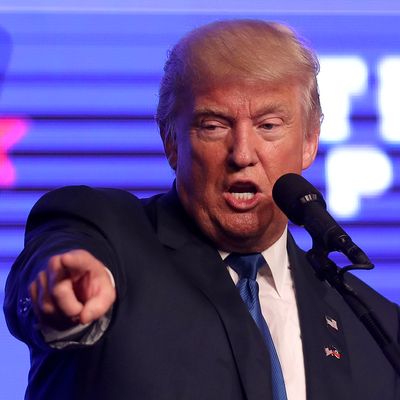
In a perfect world, presidential debates would simply be about the issues. Candidates would be judged on their knowledge of the world, their policy insights, and their ability to paint a clear, coherent, humane vision of the country and the future.
That is not how debates work.
Rather, debates are at least as much about gut-impulse reactions to spectacle than they are about intellect. Even a cursory glance at past debate coverage shows that for every reaction article highlighting a candidate’s misunderstanding of some vital area of American policy, there are a half-dozen focusing on much more symbolic and less substantive stuff. Did Al Gore demonstrate too much knowledge in one of his debates with George W. Bush, turning off the average American? Did Richard Nixon’s feeble post-hospital look, complete with five-o’clock shadow, in the first-ever televised debate, lose him the 1960 election against the Über-telegenic John F. Kennedy?
In terms of the style-versus-substance question — or even the style-versus-different-style question — the upcoming debates between Donald Trump and Hillary Clinton, the first of which is scheduled to take place September 26 on Long Island, offers the most extreme contrast in modern debate history. As James Fallows writes in a big new Atlantic piece about the debates, if Trump doesn’t back out of the debates — and he has given some indications he might do just that — Clinton/Trump “would be must-watch TV because they would be the most extreme contrast of personal, intellectual, and political styles in America’s democratic history. Right brain versus left brain; gut versus any portion of the brain at all; impulse versus calculation; id versus superego; and of course man versus woman.”
Despite believing Trump would be a disastrous president, Fallows notes that Trump was impressive in the primary debates. “[A]s a onetime presidential speechwriter [for Jimmy Carter], and as a chronicler of the debates in these pages every four years since Bush faced Gore in 2000, I have to respect what Trump has managed onstage so far, and take seriously what he might still do.” To better understand Trump’s live-event appeal, Fallows writes, he spent a few months “asking experts on intellectual and emotional persuasion how they explain Trump’s success, and asking politicians from both parties how they expect this fall’s debates to go.”
“In many ways the performances of Donald Trump remind me of male chimpanzees and their dominance rituals,” [Goodall] told me shortly before Trump won the GOP nomination. “In order to impress rivals, males seeking to rise in the dominance hierarchy perform spectacular displays: stamping, slapping the ground, dragging branches, throwing rocks. The more vigorous and imaginative the display, the faster the individual is likely to rise in the hierarchy, and the longer he is likely to maintain that position.”
In her book My Life With the Chimpanzees, Goodall told the story of “Mike,” a chimp who maintained his dominance by kicking a series of kerosene cans ahead of him as he moved down a road, creating confusion and noise that made his rivals flee and cower. She told me she would be thinking of Mike as she watched the upcoming debates.
It’s a bit disturbing how frequently Mike comes up when primatologists write or are interviewed about Trump. When I interviewed Christopher Boehm, a professor and a director of the USC Jane Goodall Research Center, in March, for example, we talked about a piece he had written in which he had made the same comparison. “The whole point is to [intimidate] these guys who you know are aligned against you and biding your time and want your job — and so you go and put them down a couple times a day and that sort of keeps things from developing,” Boehm said, speaking of these dominance displays more broadly.
One very interesting question is whether and to what extent the one-on-one format makes it more difficult for Trump to unleash his inner primate. As Fallows points out, while Clinton is a veteran of these sorts of events, “Donald Trump, by contrast, has not been through even one head-to-head live debate.” He did well in the big, messy primary debates, but that’s because they very much played to his bombastic strengths. That is, when you’re onstage with a full handful of other candidates, the format is more diffuse: It’s easier to get away with casual insults and dominance displays, and also easier to avoid all that intellect stuff, like policy and logical back-and-forth and so on. One on one, can Trump afford to go Full Mike? Hopefully, we’ll find out soon.




